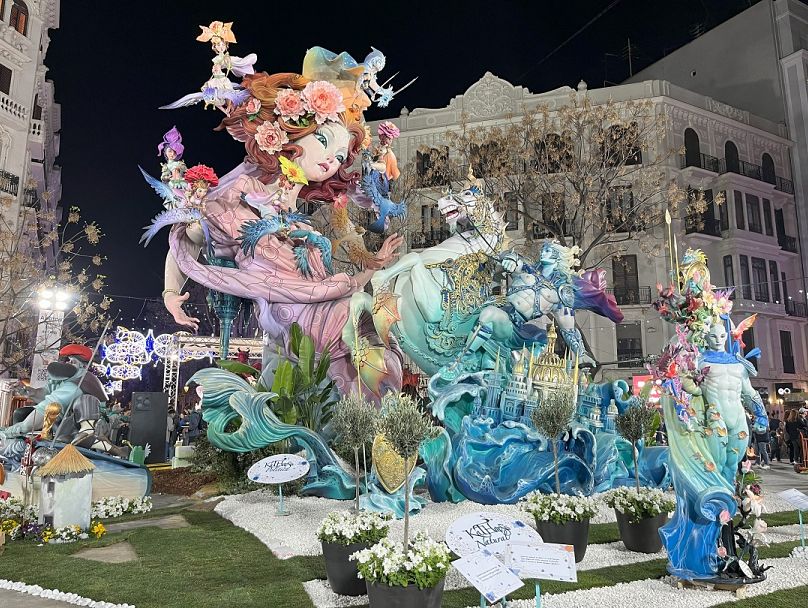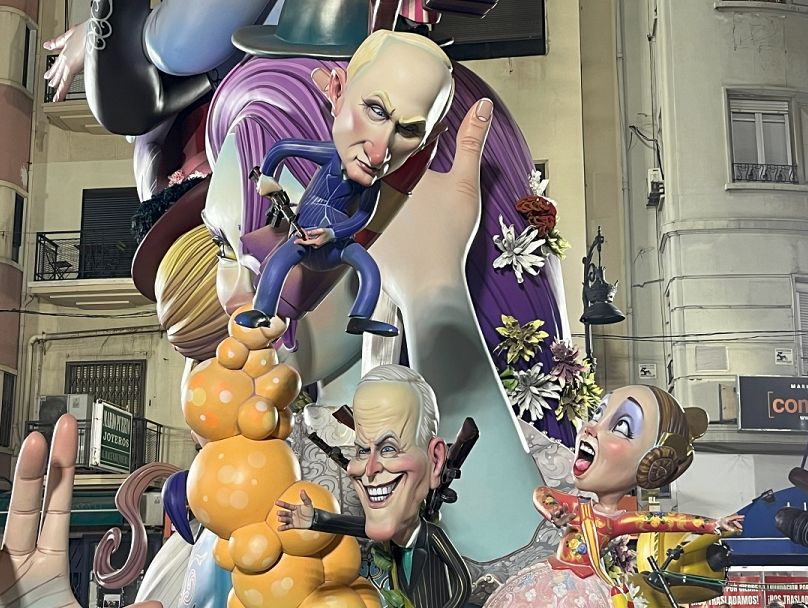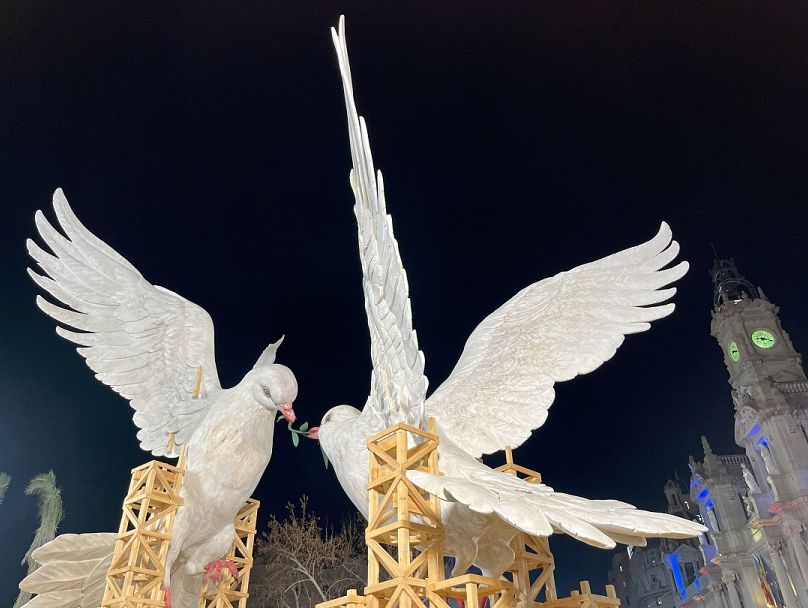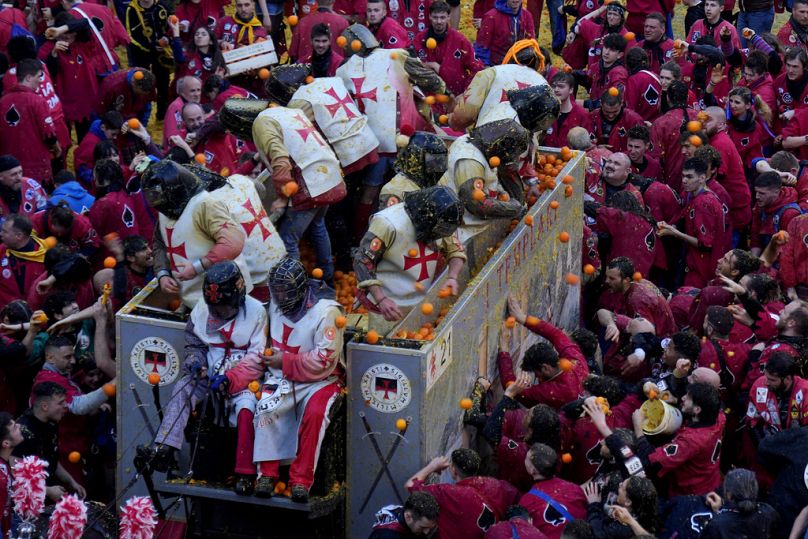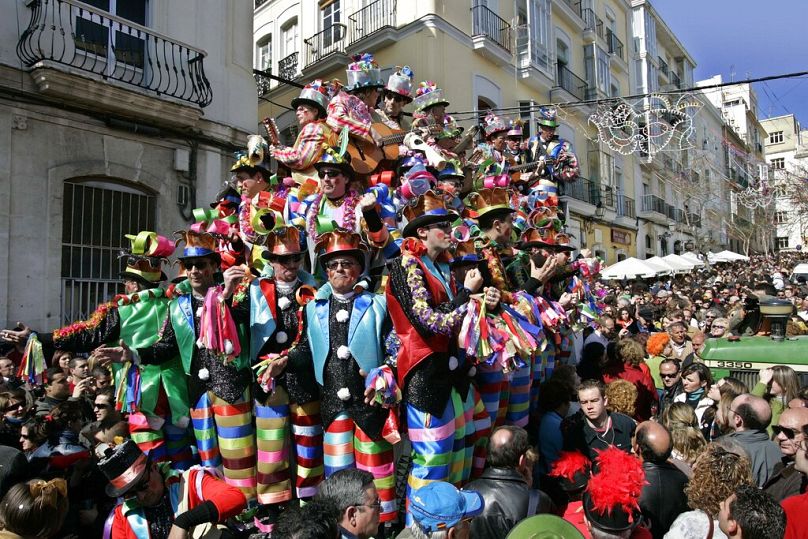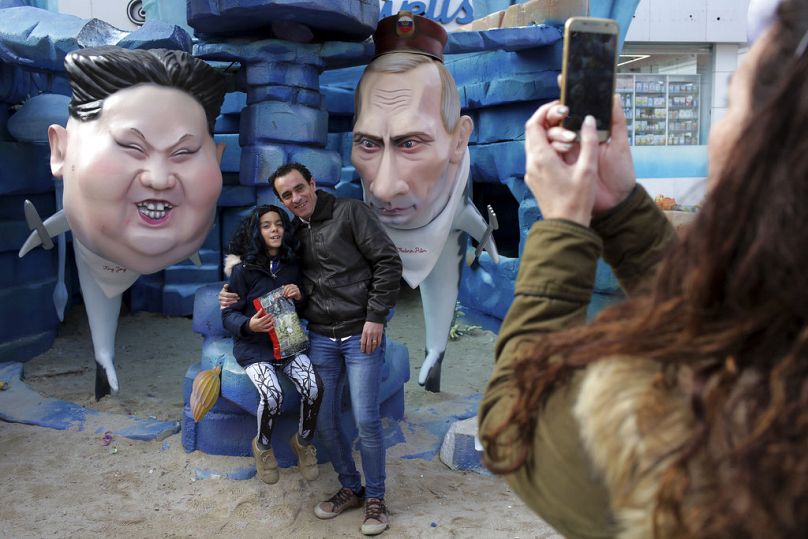Before València's fallas burn, we take a look at this and other European celebrations that were born out of social criticism or revolts against established power.
This Tuesday night, the city of València and others in this region of Spain will celebrate the Nit de la Cremà, the culmination of the Fallas festival.
An Intangible Heritage of Humanity by UNESCO, this celebration greets the arrival of spring with huge monuments representing fantastic beings - and real ones - which remain for a few days in the streets before being burnt at the end of the festival.
During these days, the neighbourhoods come alive with music, fireworks and, yes, plenty of alcohol.
The festival is thought to have originated in the 19th century, although some historians place its origins earlier.
The city's carpenters would pile up the leftover wood from their workshops to burn it in bonfires on Saint Joseph's Day, the patron saint of their guild.
Over time, these constructions took on more complex forms, until they became a great display of ephemeral art.
Local artists emerged and specialised in creating fallas based on specific themes, often commenting on current social and political issues.
It is said that in recent years the festival has become less critical. Even so, it is enough to take a stroll around the streets of València to see monuments with messages on controversial issues or parodying well-known politicians.
Each year's fallas compete in different categories before a jury.
This year, the most important prize in the city went to the falla L'Antiga, from the Campanar neighbourhood, sadly known for a fire at an apartment complex last February, in which ten people died.
The falla, called 'Climate Change', is a commentary on the ongoing environmental crisis.
The city council has its own falla too, which this year depicts two huge white doves exchanging an olive branch.
Its author claims that it is a message for peace at a time when the world is in the midst of conflict.
Satire and criticism of power in other European festivities
The Fallas is not the only excuse in Europe to throw a party based on humour or social denunciation.
Here are some examples:
Battle of the Oranges - Ivrea (Italy)
In the small Italian town of Ivrea, at the foot of the Piedmont Alps, Italy's oldest carnival is held.
Its most popular event is undoubtedly the Battle of the Oranges, in which participants literally throw oranges against each other.
This curious war has its origins in the Middle Ages. Its protagonist is Violetta, daughter of a local miller, who rebelled against an evil duke who ruled the town. As the story goes, the duke wanted to exercise over the young girl the jus primae noctis, the ancient right of feudal lords to have sexual relations with the women under their dominion, especially on their wedding night.
Violetta became a heroine when she agreed to sleep with the duke and killed him with his own sword. After his death, the town rose up against his tyranny and burned down his castle.
Today's Battle of the Oranges recreates the struggles between his supporters and detractors.
Some say the fruit represents the duke's head, while others claim it is a symbol of his privileges.
Carnival of Cádiz (Spain)
Back in Spain, the Andalusian city of Cádiz celebrates its famous carnival with music as the main protagonist.
The city fills with musical groups singing satirical songs and denouncing social injustices.
Dressed in striking costumes, each group chooses a topic to sing about, and they walk the streets delighting the audience with their humour.
In January, the official carnival groups competition begins, in which they compete for prizes in different categories.
This carnival has a very critical facet.
In 1862, the city council decided to municipalise the event in order to establish rules in view of what was seen as social disorder.
Later, during Franco's dictatorship, the lyrics of the songs were censored to avoid criticism of the regime.
At the end of the 1970s, with the restoration of democracy in Spain, the carnival of Cádiz regained its lost freedom.
Carnival of Torres Vedras (Portugal)
Near Lisbon, the Carnival of Torres Vedras is another example of how to throw a party while mocking the powerful.
Like many others, it has its origins in the pagan festivities leading up to Lent, the Christian period of fasting and penance.
Musical troupes accompany 13 floats through the city, with allegorical themes which change from year to year.
There are huge puppets parodying politicians and international leaders, such as Donald Trump or Kim Jong-un.
This year, the floats parade celebrated its 100th anniversary.
Check out the video above on the Carnival of Torres Vedras.












